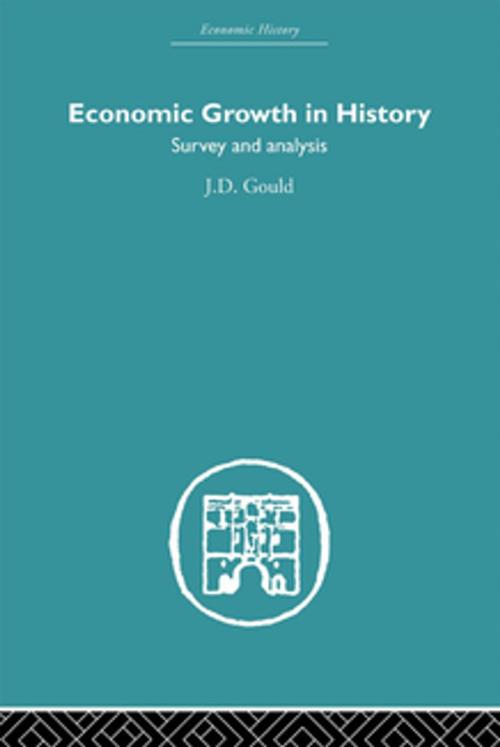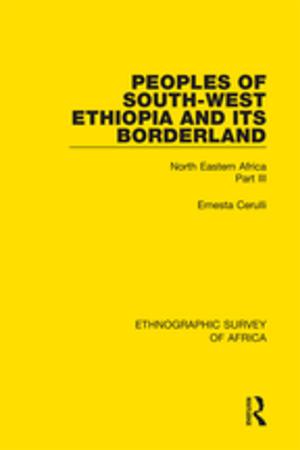| Author: | J.D. Gould | ISBN: | 9781134560868 |
| Publisher: | Taylor and Francis | Publication: | October 16, 2013 |
| Imprint: | Routledge | Language: | English |
| Author: | J.D. Gould |
| ISBN: | 9781134560868 |
| Publisher: | Taylor and Francis |
| Publication: | October 16, 2013 |
| Imprint: | Routledge |
| Language: | English |
This book breaks fresh ground in the most challenging aspect of economics and economic history – the nature of economic growth.
Professor Gould considers a wide range of theories about growth and its causes, and examines these theories in the light of modern economic history. The first chapter sketches the historical experience of growth in its broad contours. There follow discussions of the contribution made by agriculture, savings and investment, foreign trade, industrialization, technological change and a number of ‘residual’ elements. A final chapter offers a critical survey of several leading theories of economic development, judged in the light of actual historical experience.
Throughout, the author has chosen to test theories rather than to deploy data of historical change and then induce theory from it. Often the result is somewhat discouraging, either because historical reality proves to be too complex to be adequately explained by even a sophisticated ‘theory’, or because practical difficulties make it impossible to subject the theory in question to a satisfactory test. Yet economists no less than economic historians will value the exercise for removing so many confusions from the study of development economics. Professor Gould’s highly readable style and avoidance of unnecessary jargon ensure that his book will be readily accessible to all those interested in problems of global poverty and economic development. This book was first published in 1972.
This book breaks fresh ground in the most challenging aspect of economics and economic history – the nature of economic growth.
Professor Gould considers a wide range of theories about growth and its causes, and examines these theories in the light of modern economic history. The first chapter sketches the historical experience of growth in its broad contours. There follow discussions of the contribution made by agriculture, savings and investment, foreign trade, industrialization, technological change and a number of ‘residual’ elements. A final chapter offers a critical survey of several leading theories of economic development, judged in the light of actual historical experience.
Throughout, the author has chosen to test theories rather than to deploy data of historical change and then induce theory from it. Often the result is somewhat discouraging, either because historical reality proves to be too complex to be adequately explained by even a sophisticated ‘theory’, or because practical difficulties make it impossible to subject the theory in question to a satisfactory test. Yet economists no less than economic historians will value the exercise for removing so many confusions from the study of development economics. Professor Gould’s highly readable style and avoidance of unnecessary jargon ensure that his book will be readily accessible to all those interested in problems of global poverty and economic development. This book was first published in 1972.















